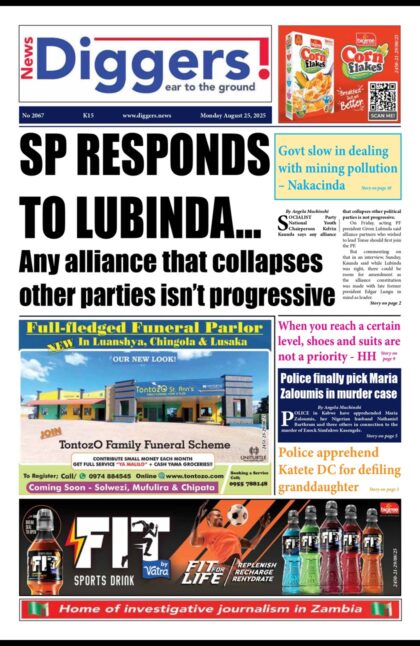Zambia Union of Financial Institution and Allied Workers (ZUFIAW ) president Ackim Mweemba says the continued depreciation in the value of the Kwacha has severe effects on poor people of Zambia.
In a statement today, Mweemba called on government to come up with policies that would make it a requirement for any foreign company operating in Zambia to sign a joint-venture with local firms.
And Mweemba called on the Bank of Zambia to use its monetary policy instruments and make sure that the Kwacha stabilises and also that industrialisation of the economy is ensured.
“As a labour movement, we are worried that the continued downward trajectory in the value of the local currency will have severe impact on the living standards of workers and the poor. It is common knowledge that most of the workers in Zambia are poorly paid and erosion in the value of the currency, in an import-dependent economy as ours would only entail one thing; an inevitable increase in the cost of goods and services. It is based on this that we are fearful that workers and the poor will struggle to survive,” Mweemba stated.
“Our appeal therefore is to the Bank of Zambia to efficiently use its monetary policy instruments to ensure that the Kwacha stabilises. But ZUFIAW is aware that any such measures by the central Bank are not sustainable in the long-term. It is in this regard that we reiterate our call on government to seriously and practically work on formulating policies that would lead towards industrialisation of the economy.”
Mweemba regretted that the country had still not migrated from being a mono-economy after 52 years of being independent.
“It is very disheartening that with over fifty years as an independent country, Zambia is not only a mono-economy but evidently appears not to go beyond rhetoric. For example, in the last ten years, the country has had on several occasions including this year when the agricultural sector has produced surplus crop, particularly maize. But instead of exporting finished products such as mealie meal, the country still exports grain. What this entails is that the country is not maximizing on foreign exchange value that comes with exporting finished products which can bring more foreign exchange to help sustain the stability of the Kwacha,” he stated.
Mweemba insisted that government should make it a requirement for all foreign businesses operating in Zambia to give a considerable share to Zambians as one way growing of local enterprise.
“Authorities should know that it does not serve workers and the poor of this country to continue working hard without accruing the benefits of their labour because the value of their money is eroded. Going forward therefore, we would like to state that it is time to act, let their be policies that forbid exportation of raw maize. Let their be policies that make it a requirement for any foreign company to do business in Zambia, there must be joint-venture with local firms. Imagine what would happen if these multi-miliion dollar contracts given to foreigners in the construction sector had a considerable Zambian share; there would be retention of foreign currency which would go a long way in stabilizing the foreign exchange market, apart from other benefits such as growth of local enterprise,” stated Mweemba.
























